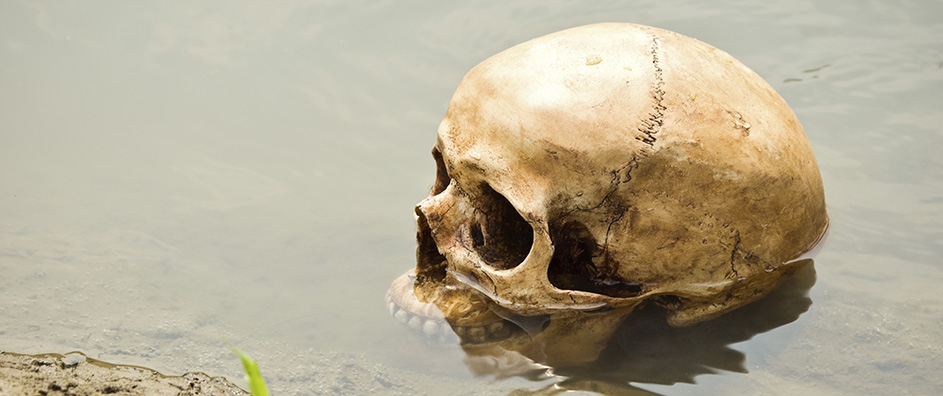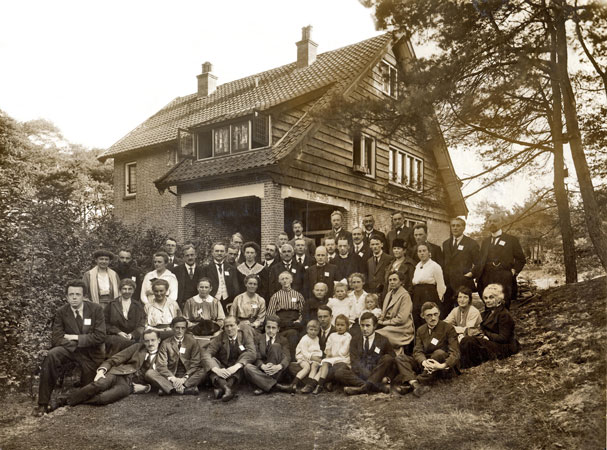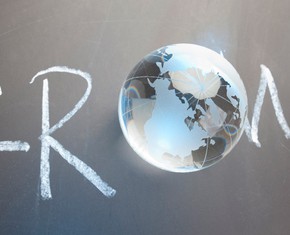The views expressed in our content reflect individual perspectives and do not represent the authoritative views of the Baha'i Faith.
Why should we kill our fellow-creatures? – Abdu’l-Baha, Baha’i World Faith, p. 244.
Would you ever kill another person?
Most people react to that question with a horrified “Absolutely not!” or a “NO!”
So then I ask “How about in war?”
“Well,” I usually hear, “I guess that depends,” or “If I had to,” or “Maybe in self-defense?”
“Okay,” I sometimes say. “So you have a moral objection to killing, unless your country tells you to?”
That question usually takes a little longer for people to answer.
I volunteer at local high schools with a peace group, and we do what we call peace recruitment. That means we ask young high school students a few basic moral questions, engage them in conversations about war and peace, and talk to them about their futures. Mainly we hope to dissuade them from joining the military, try to keep them alive, and generally steer them into more peaceable and less perilous professions. We know that the core of our work, preventing war, has to start with the individual soldier, and with those who contemplate becoming soldiers.
So we pass out a little postcard that simply says I Will Not Kill in bold red letters on the front. On the back it says:
As a young person concerned about my future and the future of all young people, I pledge that: I will not kill; I will not go to war; I will not support war against other nations; I will resist recruitment into the military; I will encourage others to do the same.
These postcards come from a wonderful, dedicated international and interfaith peace and justice organization called the Fellowship of Reconciliation. The FOR, as it’s known, celebrates its 100th anniversary in December. The organization describes its history and mission this way:
In 1914, an ecumenical conference was held in Switzerland by Christians seeking to prevent the outbreak of war in Europe. Before the conference ended, however, World War I had started and those present had to return to their respective countries. At a railroad station in Germany, two of the participants, Henry Hodgkin, an English Quaker, and Friedrich Siegmund-Schultze, a German Lutheran, pledged to find a way of working for peace even though their countries were at war. Out of this pledge Christians gathered in Cambridge, England in December 1914 to found the Fellowship of Reconciliation. The U.S. FOR was founded one year later, in November 1915, at a conference in Garden City, Long Island, New York.
FOR has since become an interfaith and international movement with branches and affiliated groups in over 50 countries and on every continent. Today the membership of FOR includes Jews, Christians, Buddhists, Muslims, Indigenous religious practitioners, Baha’i, and people of other faith traditions, as well as those with no formal religious affiliation. – from the FOR website.
Remember when Christ said “Blessed are the peacemakers”? That’s how I think of the dedicated people who work every day to end hostility and war. Global peace groups like the FOR have an enormously important role to play in convincing the young that they can consider a peaceable approach to life.
The Baha’i teachings support and encourage the same goal:
We cherish the hope that through the earnest endeavours of such as are the exponents of the power of God — exalted be His glory — the weapons of war throughout the world may be converted into instruments of reconstruction and that strife and conflict may be removed from the midst of men. – Baha’u’llah, Tablets of Baha’u’llah, p. 23.
They must put away the weapons of war, and turn to the instruments of universal reconstruction. – Baha’u’llah, Epistle to the Son of the Wolf, p. 30.
We cannot induce men to lay down their arms by fighting with them. – Abdu’l-Baha, Divine Philosophy, p. 84.
Putting away the weapons of war is no simple task, and the hardest ones to put away aren’t necessarily made of iron. Instead, our internal weapons of war, the aggression and attitudes and beliefs and inherited ideas we all get from our peers and our entertainment and our society, may be the toughest weapons to de-commission.
Our culture typically portrays courage as heroism on the battlefield—but in this series of essays, we’ll take a look at the courage it takes to refuse to go to the battlefield, and to enlist instead in the army of the peacemakers. We’ll discuss five of the best reasons this war veteran knows not to kill anyone. We’ll look at what war means for the soldier; what peace means for the civilian; and what it takes to become a warrior who fights to build a peaceful world.
You May Also Like
Comments


















"Our position as Baha'is is not that we won't obey our Government or support the country if attacked, it is that we do not believe in, or wish to take part in, killing our fellow-men. We are not conscientious objectors at all, we will serve, but wish, as there is a provision in the law in the USA covering our attitude, to be classified as non-combatants. If you need to consult on this matter, you should refer to the N.S.A., as this question continually arises, and they can give you ...advice which will be the most accurate and applicable to present conditions."
(From a letter written on behalf of Shoghi Effendi to an individual believer, July 15, 1952)
http://universalhouseofjustice.bahai.org/involvement-life-society/20130302_001
It's not enough to agree with the goals of an organization before becoming involved or identifying it with the Faith: their approach and method have to be consistent with Baha'i principles as well. Otherwise, we miss the opportunity to create a new paradigm of change beyond forming factions and targeting opponents.